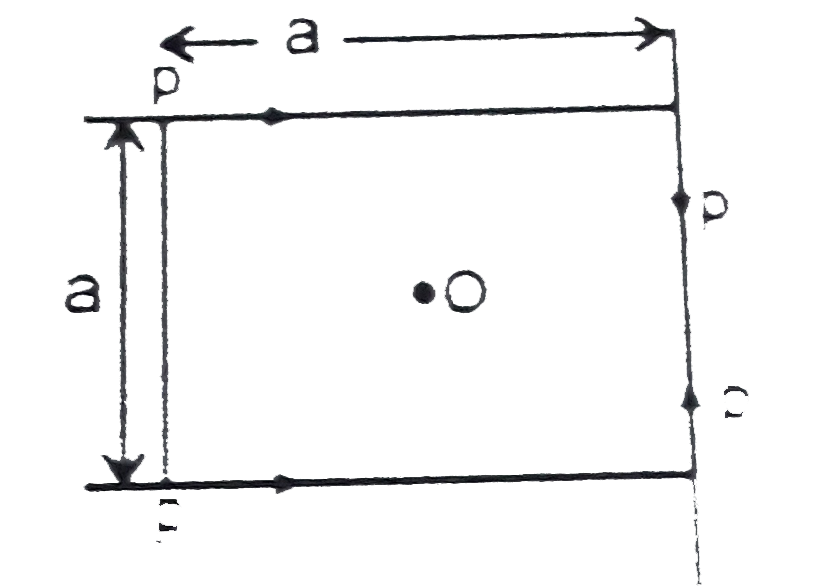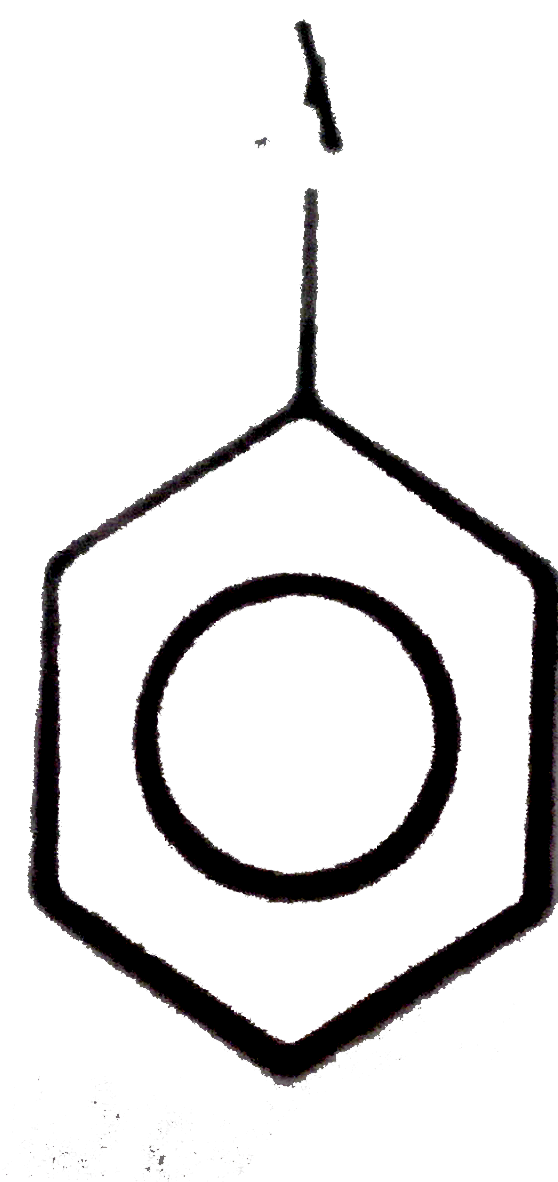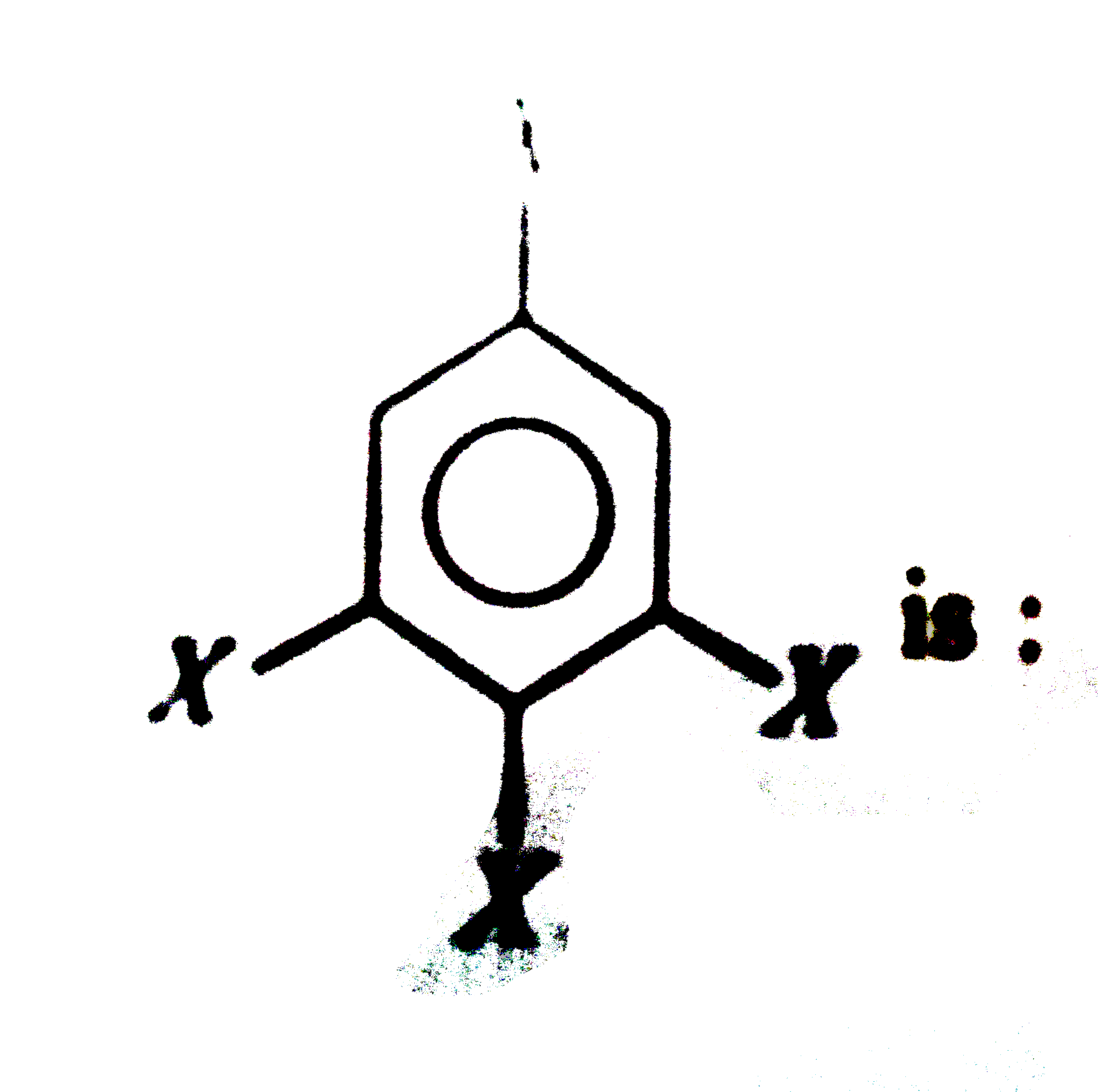The electric field at a point on equatorial of a dipole and direction of the dipole moment
180∘
0∘
45∘
90∘
The correct Answer is:A
To solve the question regarding the electric field at a point on the equatorial line of a dipole and the direction of the dipole moment, we can follow these steps:
Step 1: Understand the Dipole Configuration
A dipole consists of two equal and opposite charges, +q and -q, separated by a distance 'd'. The dipole moment (p) is defined as:
p=q⋅d
where the direction of the dipole moment is from the negative charge to the positive charge.
Hint: Remember that the dipole moment points from the negative charge to the positive charge.
Step 2: Identify the Equatorial Point
The equatorial point of a dipole is located on the perpendicular bisector of the dipole. This means that if you draw a line through the center of the dipole at a right angle, any point along this line is considered an equatorial point.
Hint: The equatorial point is perpendicular to the line joining the two charges.
Step 3: Analyze the Electric Field at the Equatorial Point
At the equatorial point, the electric fields due to both charges will have specific directions:
- The electric field due to the positive charge (+q) points away from the charge.
- The electric field due to the negative charge (-q) points towards the charge.
Since the equatorial point is equidistant from both charges, the magnitudes of the electric fields due to each charge will be equal, but their directions will be opposite.
Hint: The electric field due to the positive charge is directed away from it, while the electric field due to the negative charge is directed towards it.
Step 4: Determine the Resultant Electric Field
At the equatorial point, the two electric fields will cancel each other out in the direction along the dipole axis, but they will add up in the perpendicular direction. Therefore, the resultant electric field at the equatorial point will be directed away from the dipole.
Hint: The resultant electric field at the equatorial point is the vector sum of the fields due to both charges.
Step 5: Relate the Direction of the Electric Field to the Dipole Moment
The direction of the dipole moment is from the negative charge to the positive charge. Since the electric field at the equatorial point is directed away from the dipole, it is opposite to the direction of the dipole moment.
Hint: The dipole moment direction is opposite to the direction of the electric field at the equatorial point.
Conclusion
Thus, the angle between the direction of the electric field at the equatorial point and the dipole moment is 180 degrees.
Final Answer: The electric field at a point on the equatorial of a dipole is directed opposite to the dipole moment, which corresponds to option A: 180 degrees.
A dipole consists of two equal and opposite charges, +q and -q, separated by a distance 'd'. The dipole moment (p) is defined as:
p=q⋅d
where the direction of the dipole moment is from the negative charge to the positive charge.
The equatorial point of a dipole is located on the perpendicular bisector of the dipole. This means that if you draw a line through the center of the dipole at a right angle, any point along this line is considered an equatorial point.
At the equatorial point, the electric fields due to both charges will have specific directions:
- The electric field due to the positive charge (+q) points away from the charge.
- The electric field due to the negative charge (-q) points towards the charge.
At the equatorial point, the two electric fields will cancel each other out in the direction along the dipole axis, but they will add up in the perpendicular direction. Therefore, the resultant electric field at the equatorial point will be directed away from the dipole.
The direction of the dipole moment is from the negative charge to the positive charge. Since the electric field at the equatorial point is directed away from the dipole, it is opposite to the direction of the dipole moment.
Thus, the angle between the direction of the electric field at the equatorial point and the dipole moment is 180 degrees.
Topper's Solved these Questions
- ELECTROSTATICSBOOK - DC PANDEY ENGLISHCHAPTER - ELECTROSTATICSEXERCISE - Match the columns
5 Videos
- ELECTROSTATIC POTENTIAL AND CAPACITORSBOOK - DC PANDEY ENGLISHCHAPTER - ELECTROSTATIC POTENTIAL AND CAPACITORSEXERCISE - (C) Chapter exercises
50 Videos
- GRAVITATIONBOOK - DC PANDEY ENGLISHCHAPTER - GRAVITATIONEXERCISE - All Questions
135 Videos
Similar Questions
The electric field at a point on the equatorial plane at a distance r from the centre of a dipole having dipole moment →p is given by (r >> seperation of two charges forming dipole , ε0 = permittivity of free space
View Solution(a) Define electric dipole moment. Is it a scalar or a vector ? Derive the expression for the electric field of a dipole at a point on the equatorial plane of the dipole.
(b) Draw the equipotential surfaces due to an electric dipole. Locate the points where the potential due to the dipole is zero.
View Solution(i) Derive the expression for electric field at a point on the equatorial line of an electric dipole.
(ii) Depiet the orientation of the dipole in (i) stable, (ii) unstable equilibrium in a uniform electric field.
View SolutionElectric potential at any point in equatorial plane of a dipole is ………. .
View SolutionThe electric field at a point due to an electric dipole, on an axis inclined at an angle θ(<90∘) to the dipole axis, is perpendicular to the dipole axis, if the angle θ is
View SolutionFour short dipoles each of dipole moment 'p' are placed at the vertices of a square of side a. The direction of the dipole moments are shown in the figure.

View SolutionThe electric field of an electric dipole at a point on its axis , at a distance d from the centre of the dipole, varies as
View SolutionSTATEMENT-1 :The direction of electric dipole moment is directed from +q to -q
STATEMENT -2 : Electric field at any point in space may be perpendicular to the diple moment.
STATEMENT-3 : A dipole experiences maximum torques at the position where potential energy is zero.
View SolutionThe electric field at a point at a distance r from an electric dipole is proportional to ......
View SolutionDipole moment of
 is 1.5D. The dipole moment of
is 1.5D. The dipole moment of

View Solution
